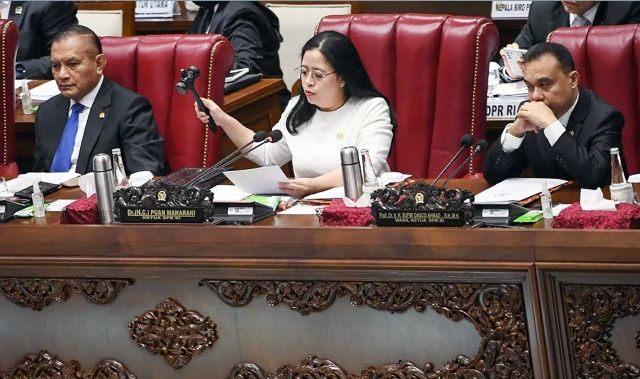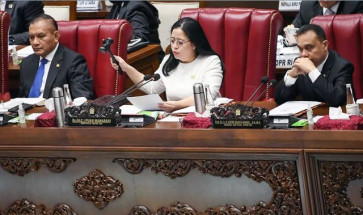Popular Reads
Top Results
Can't find what you're looking for?
View all search resultsPopular Reads
Top Results
Can't find what you're looking for?
View all search resultsExpanding Indonesia’s fiscal space as potential growth booster
The government should consider temporary adjustment of the fiscal rules, particularly the deficit rule, to create more fiscal space and flexibility to increase growth.
Change text size
Gift Premium Articles
to Anyone
F
or many 2024 is an interesting year for Indonesia’s economy. Looking back 21 years ago, in 2003, the government introduced the State Finance Law, which is still in force. It was a bold and substantial reform, replacing the outdated Dutch colonial regulations, aiming to create a more sustainable fiscal management.
Some of the changes include the transformation of the annual state budget format from a previous T-account (balance budget paradigm), into an I-account (surplus/deficit budget) and the mandate of the annual budget deficit ceiling of 3 percent, as well as a new debt rule to not exceed 60 percent of gross domestic product.
The law, along with other reforms, has proven helpful in maintaining Indonesia’s fiscal soundness, especially in the event of a crisis. Since then, Indonesia has maintained the budget deficit consistently below the threshold.
As a response to the global economic crisis due to the COVID-19 pandemic, Indonesia temporarily suspended the deficit ceiling according to Law No. 2/2020, particularly to tackle the disease and to support the economic recovery, allowing the budget deficit to exceed the threshold.
As a result, in 2022, Indonesia emerged as one of the most resilient economies, with its growth and debt level recorded at 5.3 percent year-on-year (yoy) and 39.9 percent, respectively. Indonesia also successfully consolidated its budget deficit at 2.4 percent of GDP in the same year, earlier than mandated in Law No. 2/2020.
Recently, the Finance Ministry also reported that the 2023 budget performance was marvelous with economic growth at 5.1 percent, a budget deficit at 1.7 percent of GDP, much lower than the previous year, and a primary balance surplus of Rp 92.2 trillion, the first time since 2011. These figures reflect the success of the government in managing fiscal policies.
Looking forward to the next 21 years, Indonesia aims to become an advanced economy by 2045. This ambitious objective requires some conditions, mainly higher economic growth.



















